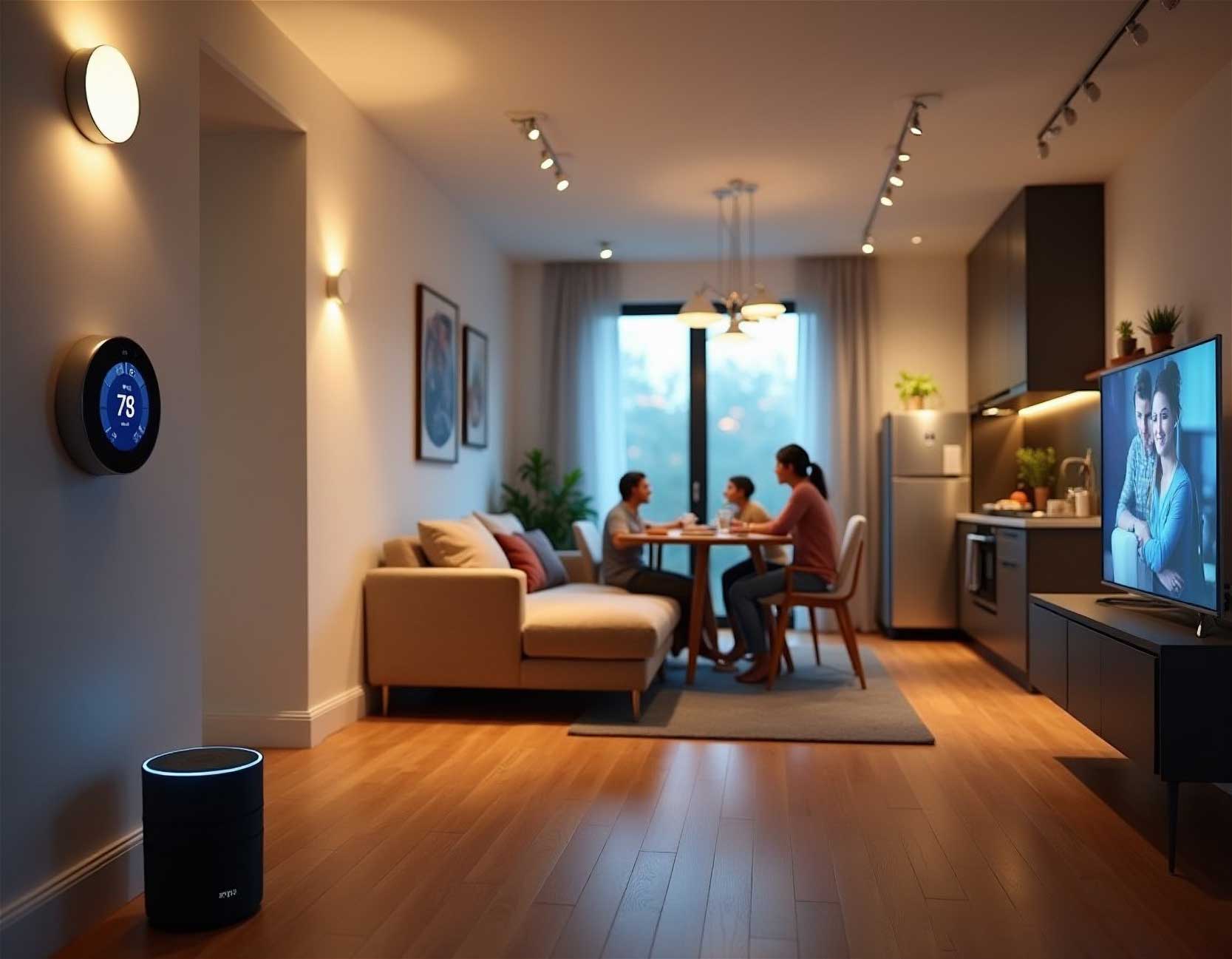Your cart is currently empty!
Ready to choose smart appliances for your home? With the rapid rise of smart home technology, choosing the right smart appliances can significantly improve your day-to-day living. From controlling your home’s environment to automating household tasks, smart appliances provide convenience, energy savings, and a better-connected lifestyle. However, with so many options available, it can be overwhelming to know where to start. Here’s a guide to help you choose the right smart appliances for your home.
1. Identify Your Needs and Priorities
This guide to choose smart appliances starts with understanding what fits your home. The first step in choosing smart appliances is understanding your needs and priorities.
Ask yourself the following questions:
- What areas of your home could benefit most from automation?
- Are you looking to enhance convenience, security, or energy efficiency?
- Do you want to control appliances remotely when you’re not at home?
When you choose smart appliances, compatibility with your existing devices is crucial.
If convenience is your main focus, smart kitchen appliances like coffee makers, ovens, or refrigerators may be a priority. If energy savings are key, you might want to invest in smart thermostats or smart plugs to optimize electricity usage.
2. Ensure Device Compatibility
Before purchasing any smart appliance, it’s crucial to ensure that it is compatible with your existing devices and home setup. Most smart home appliances work within a specific ecosystem, such as Amazon Alexa, Google Assistant, or Apple HomeKit.
If you already use a voice assistant or smart home hub, choose appliances that can integrate smoothly with your current setup. This way, you can control everything from one platform without needing multiple apps. Compatibility ensures that all your devices work together seamlessly, providing you with an easy, unified experience.
3. Consider Energy Efficiency
One of the greatest benefits of smart home appliances is the potential to save energy. When choosing devices, look for appliances with energy-saving features. Smart thermostats, for instance, learn your schedule and adjust temperatures automatically to reduce power usage when you’re not home.
Smart washing machines and dryers can be programmed to run during off-peak hours, helping you reduce utility costs. Energy-efficient smart refrigerators also come with alerts to notify you if a door is left open, preventing energy wastage. Choose smart appliances that cut energy costs—think smart thermostats or eco-friendly washers.
4. Look for Automation Capabilities
The automation of daily tasks is one of the core features of smart appliances. When selecting appliances, prioritize those that offer extensive automation options. For example, smart coffee makers can be scheduled to brew coffee every morning at a specific time, and smart ovens can be preheated remotely so they’re ready when you arrive home.
Smart appliances with scheduling and remote access give you greater control over your home’s functionality, saving time and effort. Some appliances even offer learning capabilities, adapting to your routines and preferences to make automated decisions on your behalf.
5. Focus on Security Features
If security is a top concern, choosing smart appliances with enhanced security features is essential. Smart locks, cameras, and security systems are designed to give you peace of mind, allowing you to monitor your home remotely.
For instance, smart locks can grant temporary access to guests or service providers, while smart cameras with motion detection notify you of any unusual activity. Many security appliances can be monitored through an app, so you’ll always know what’s happening at home, even when you’re away.
6. Check for Ease of Use
When it comes to smart technology, ease of use is crucial. A high-tech smart appliance can be exciting, but if it’s complicated to operate, you may end up frustrated. Choose appliances with user-friendly interfaces, easy setup processes, and intuitive mobile apps.
Read user reviews or watch product demos online to get a sense of how easy the appliance is to integrate and control. Simplicity should be a key factor in your decision-making process, especially if you’re new to smart home technology.
7. Evaluate Long-Term Value
While some smart appliances might have a higher upfront cost compared to traditional models, consider their long-term value. Features like energy savings, reduced maintenance, and increased convenience can offset the initial investment over time.
For instance, a smart refrigerator that alerts you to maintenance issues early on can prevent costly repairs in the future. Likewise, a smart thermostat that reduces energy consumption can lead to significant savings on utility bills.
8. Consider Smart Appliances for Specific Rooms
Depending on which part of your home you want to upgrade, different appliances may be more suitable:
- Kitchen: Smart refrigerators, ovens, and coffee makers can streamline meal prep and grocery management.
- Living Room: Smart TVs, speakers, and lighting systems can create a connected entertainment hub.
- Bathroom: Smart mirrors, showers, and scales can help track fitness goals and enhance comfort.
- Laundry Room: Smart washing machines and dryers can help you manage loads efficiently and even suggest optimal settings based on the fabric.
9. Check for Local Availability and Support
If you’re purchasing smart appliances in a specific region, make sure the devices you’re interested in are supported locally. This includes checking for warranty coverage, customer support, and available repair services.
Additionally, certain smart appliances might have features or apps that are region-specific. Make sure the appliances you choose are fully functional in your country, and that any software or firmware updates will be available.
Conclusion
Choosing the right smart appliances for your home requires careful consideration of your needs, budget, and lifestyle. Start by identifying which areas of your home would benefit most from automation and prioritize devices that offer energy efficiency, security, and ease of use.
By integrating smart appliances into your home, you’ll enjoy greater convenience, enhanced security, and long-term savings—all while making your home more connected and efficient.
Now that you know how to choose smart appliances, it’s time to upgrade your home. Explore our range of smart devices tailored for Malaysian lifestyles at our shop. Need advice? Contact us today for personalized tips to get started!



Leave a Reply